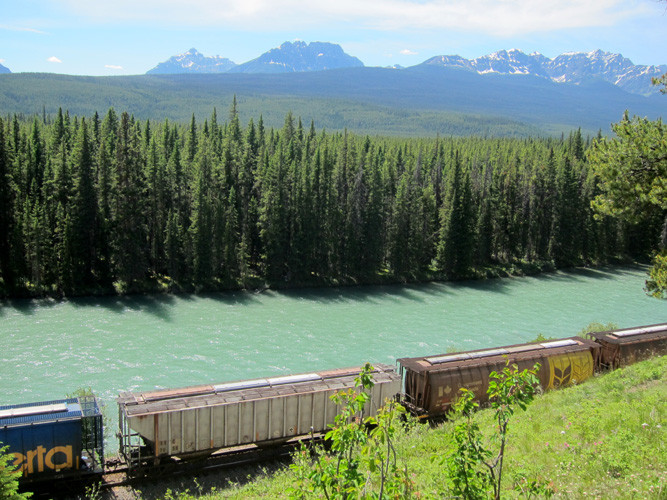Canada's Rail Stoppage: A Blow to North American Supply Chains and the Economy
Canada's two major freight railroads, Canadian National Railway (CN) and Canadian Pacific Kansas City (CPKC), have locked out nearly 9,300 workers, halting freight traffic and disrupting supply chains across North America. The unprecedented rail stoppage is expected to cause billions of dollars in economic damage and disrupt the movement of goods, from grain and potash to autos and chemicals, across the continent.
The shutdown, which began at 12:01 a.m. ET on Thursday, comes after multiple rounds of contract talks between the railroads and the Teamsters union failed to yield a new agreement. The companies and the union have blamed each other for the impasse, with the Teamsters accusing the railroads of prioritizing profits over worker safety and the railroads claiming to have made multiple offers with better pay and working conditions.
The Stakes Are High for Both Nations
The stoppage is a significant blow to both the Canadian and US economies. Canada relies heavily on rail transport, with around C$380 billion ($277 billion) worth of goods transported by rail annually. Nearly a third of the freight handled by CN and CPKC crosses the US-Canadian border, and the shutdown could disrupt operations in a number of US industries, including agriculture, autos, home building and energy.
A Potential Cascade of Disruptions
The shutdown is expected to cause a range of disruptions, including:
- Disruption of grain shipments: Canadian farmers rely heavily on rail to transport their crops, and the shutdown could lead to a backlog of grain shipments, potentially impacting global food supplies.
- Shortages of fertilizer and other agricultural inputs: The shutdown could lead to shortages of fertilizer, chemicals, and other agricultural inputs, impacting farmers in both Canada and the US.
- Delays in auto production: Automakers in both countries could face delays in production due to disruptions in the supply of parts and materials.
- Disruption of fuel and energy supplies: The shutdown could disrupt the transportation of fuel and energy products, potentially leading to price increases.
- Disruption of consumer goods shipments: The shutdown could lead to delays in the shipment of consumer goods, impacting retailers and consumers.
The Impact Extends Beyond the Border
The impact of the rail stoppage extends beyond Canada and the US. The shutdown could disrupt global supply chains and contribute to inflationary pressures.
A Complex Situation with No Easy Solution
The rail labor dispute is a complex issue, with no easy solutions. The union and the railroads are at odds over a range of issues, including wages, working conditions, and safety. The Canadian government has so far refused to step in and refer the dispute to binding arbitration, a solution favored by the railroads but opposed by the union.
The Future is Uncertain
The duration of the rail stoppage remains uncertain. If the dispute drags on, the economic impact could be significant. Economists estimate that a three-day stoppage could cause C$300 million in economic damage, while a seven-day stoppage could bring losses to more than C$1 billion. It is important to note that the longer the shutdown lasts, the greater the ripple effect will be. It will take weeks, if not months, to unwind the problems caused by a shutdown of even a few days.
The Need for a Solution
The shutdown highlights the importance of rail transportation to the North American economy. A swift resolution is crucial to minimizing the economic impact of the stoppage. The Canadian government has a responsibility to step in and facilitate a negotiated settlement, or at the very least, to refer the dispute to binding arbitration. The stakes are too high for the parties to simply wait for the other side to blink.
The Time for Collaboration
The rail labor dispute is a stark reminder of the interconnectedness of the North American economy. Both the Canadian and US governments need to work together to find a solution that is fair to workers, businesses, and consumers. The long-term economic health of both countries hinges on a swift resolution to this dispute.

















